Made Here Now ‘Young Manufacturers’ survey unveiled
19/05/2021
Made Here Now has unveiled the first part of its Young Manufacturers survey. Peter Marsh, Made Here Now founder, spoke to over 100 young people forging careers in the vibrant UK manufacturing sector about their roles and influences, and how they got their jobs in some of the country’s most innovative companies.
These include several young manufacturers from the UK fashion and textile industry at companies including Jack Masters, John Smedley, Apparel Tasker and Pinpoint. Read the full piece here or scroll down to find out more…
Rhuvi Wickramasingha, 26
Knitting technician, Jack Masters (clothing)
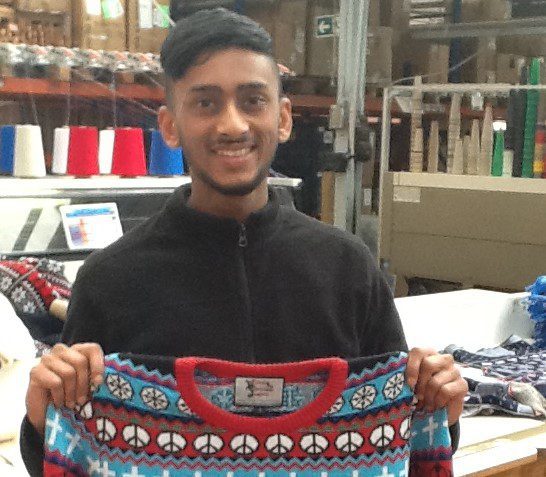
Location: Leicester, East Midlands
A career that knits different interests together
Learning to use world-class Japanese knitwear machines proves a turning point
A stint at his aunt’s knitwear business put a new meaning on the world of work for Rhuvi Wickramasingha. Even though he had previously studied graphic design at college in London, Wickramasingha says at that time he “really had no idea what I wanted to do with my life”.
His aunt Anila Preston was running British Alpaca Fashion Company in Somerset. The business produces knitwear on machines made by Shima Seiki of Japan, one of the world’s top knitting equipment manufacturers.
After the move to Somerset, Wickramasingha, then in his early 20s, learned how to program and operate the machines. Later he went to Shima’s UK base in Derby for training. Now in a job at the Leicester clothes manufacturer Jack Masters, he’s still working on Shima machines and receiving further training from seasoned machine operators.
“I had no idea that I would ever end up in a factory operating a knitting machine,” Wickramasingha says. “But now I feel I am in an occupation which I like and which offers me a way to use a combination of my design and cognitive skills.”
Chloe Cooper, 31
Design and development manager, John Smedley (knitwear)
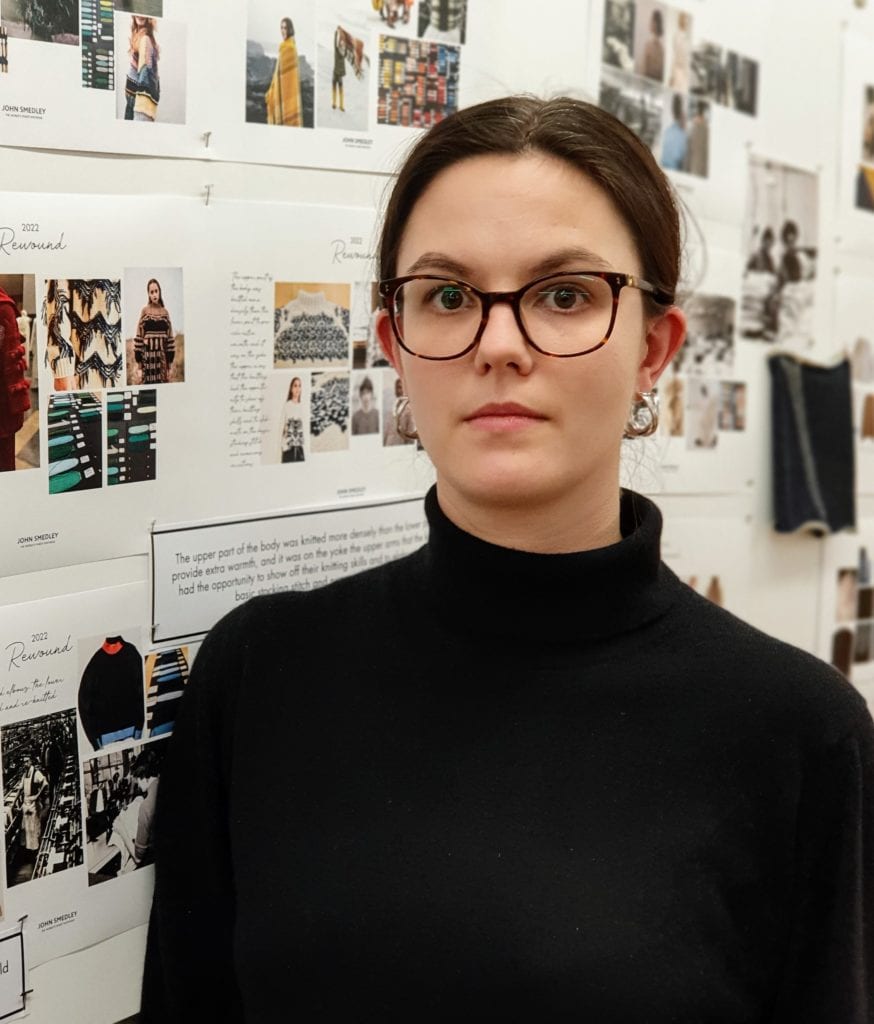
Location: Matlock, East Midlands
British knitwear is on the way back
Success is built on ethical practices and sustainability
UK manufacturing is staging a comeback, says Chloe Cooper. “All our garments are made in our own factory. We pay attention to ensuring our clothes are made in an ethical manner and that the raw materials come from sustainable sources. There’s a move towards ‘Made in England’ becoming more important and this fits in with how our company operates.”
Cooper is design and development manager at John Smedley, a knitwear company in Derbyshire based in one of the UK’s oldest factories – which started in 1784. “The job entails working with others across the company in a range of areas, including knitwear design, production and the development of new yarns and colours. For every garment we make there are thousands of variables. Even a tiny tweak can have a huge impact.”
Cooper attended Newcastle High School for Girls, which had a good textiles department, she says. “I had a supportive textiles teacher, Alison Goldie, who encouraged me to follow my interests. She helped me understand the options for further studies and a potential career in design and clothing.”
She went on to study knitwear design at Nottingham Trent University and started at John Smedley in 2013 as a designer.
Alex Gorgan, 31
Chief operating officer, ApparelTasker (clothing)
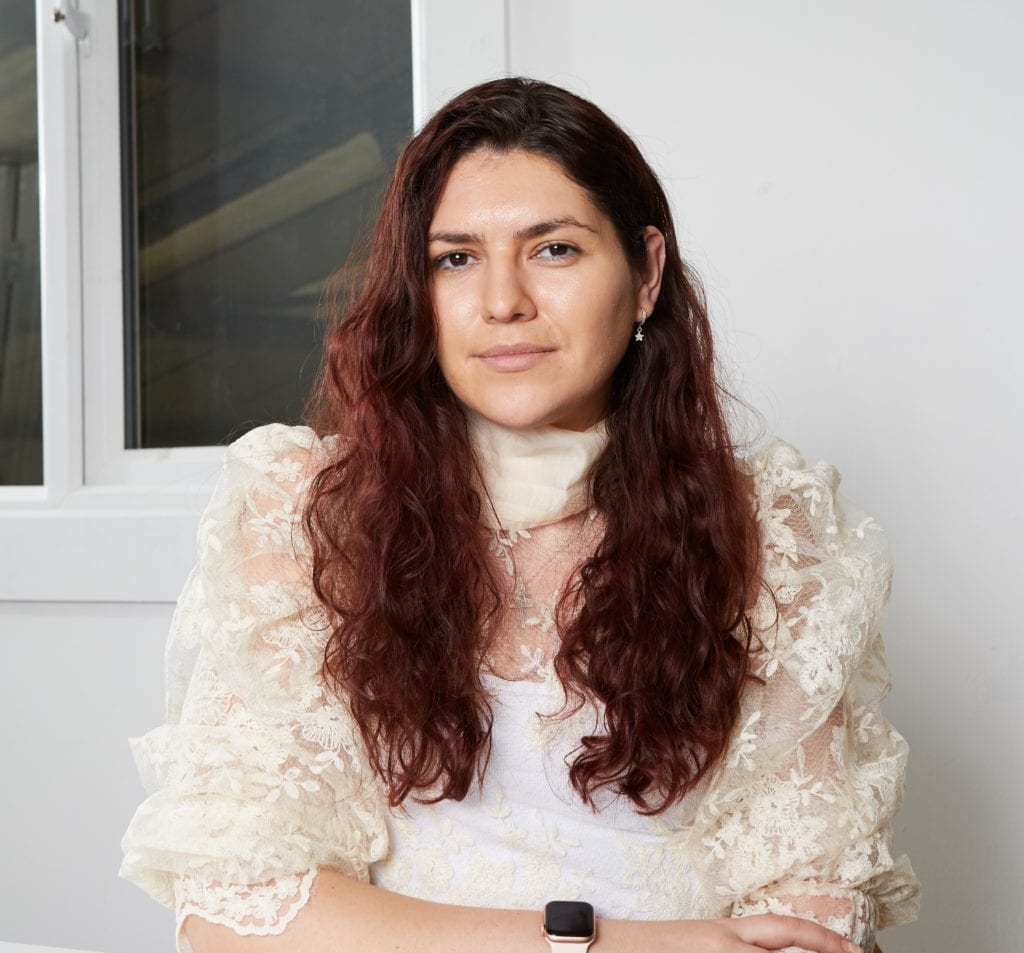
Location: London
Road trips trigger environmental awakening
Manager finds “perfect job” with sustainable clothing company
Growing up in Romania, her mother a seamstress in textiles and her father a lorry driver, Alex Gorgan developed a “twin passion” for design and sustainability.
“In the school holidays, from the age of about five, my father would sometimes take me with him on trips, sometimes long ones around Europe. I learned how beautiful the world could be but also how easy it is to ruin it.”
Gorgan studied environmental science at Babeș-Bolyai University in Cluj-Napoca before moving to London in 2013 where – following a similar path to her mother – she worked in design and fashion. In 2018, she moved to ApparelTasker, a clothes maker specialising in swimwear and selling mainly to other brands.
The company is committed to environmental responsibility, focusing on reducing energy consumption and using sustainable materials. Her job includes organising the factory and helping source fabrics, which she says “is perfect for me”.
For all the worries about the economic impact, Gorgan feels Brexit could be positive for her company and others in the home textiles industry. “Because importing may become more difficult I detect a greater enthusiasm by UK-based brands for maintaining production in Britain.”
Beth McCreery, 23
Seaming machine operator and trainer, John Smedley (knitwear)
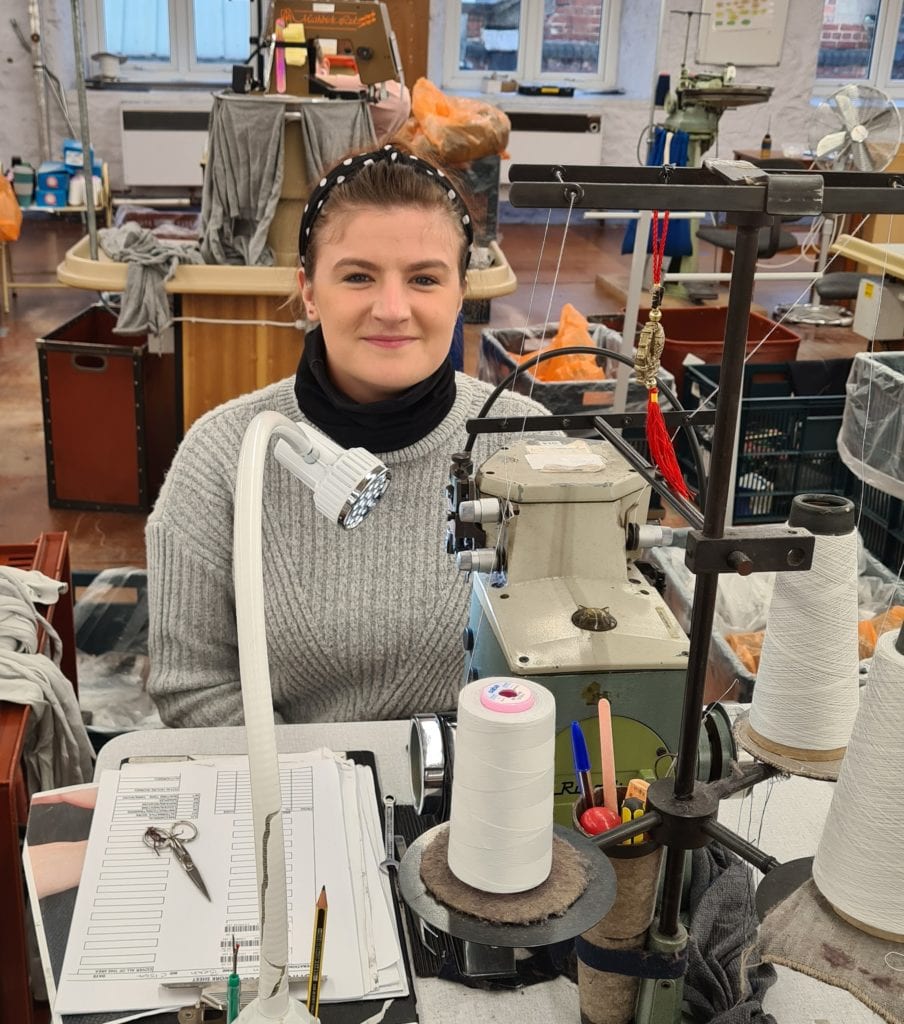
Location: Matlock, East Midlands
Seamer’s career choice runs in the family
Specialist machinist makes it three generations at the same company
Aged just 23, Beth Mccreery has the job of training new “seamers” at the John Smedley knitwear factory in Matlock. Seaming is a stitching process used in clothing production for joining fabric layers and finishing hems and edges.
When she joined John Smedley in 2013 to work on a seaming machine, Mccreery says she found the work difficult. “Seaming is more complicated than ordinary sewing. But gradually I learned how to do it well.”
From early on, she says she knew a lot about the clothing industry. “My mother and grandmother both work at John Smedley. At school I did a spell of work experience at the company and found it interesting. When I had the chance to start an apprenticeship, I thought the job could be appealing.
“Most of the people coming for jobs [as seamers] are older than me. It seems hard to recruit younger people. I’m not sure why this is but maybe it’s because the work is hard.”
Her workplace is a factory that opened in 1784. “It’s nice to be part of an industry that’s been in this area a long time.”
Jennifer La Grange, 23
Design director, Pinpoint (industrial bags)
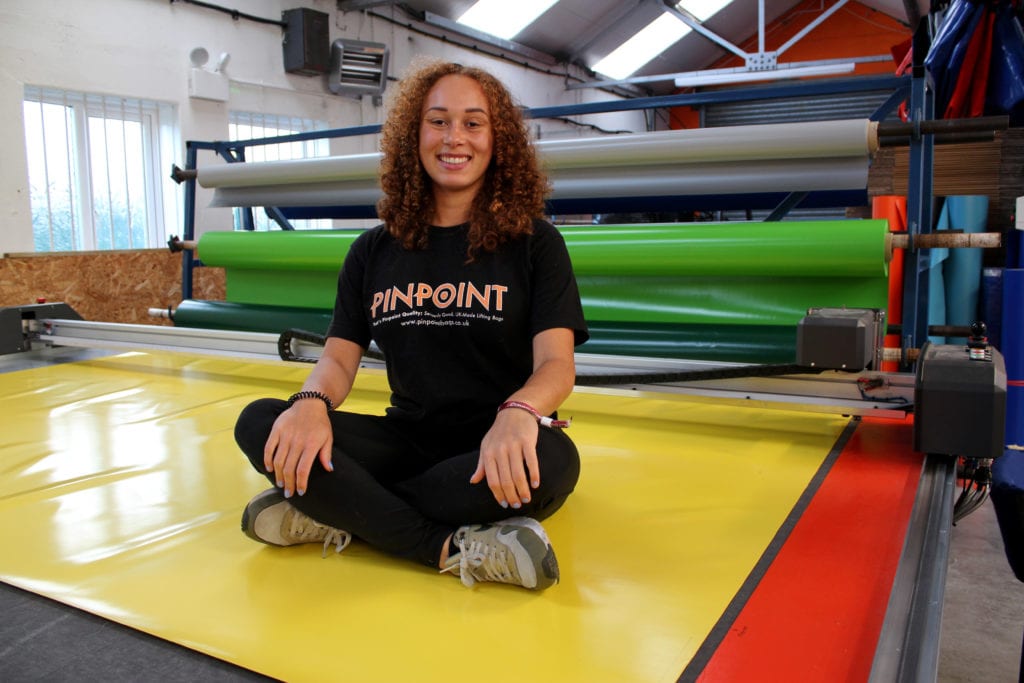
Location: Swansea, Wales
Giving an industrial supplier a lift
Teenager pilots family company into computer-aided design
In any job, it’s good to know you are making a difference. That was the feeling for Jennifer La Grange when as a teenager she was asked to bring computer-aided design (CAD) to her mother’s company.
“We didn’t have any CAD machines in the factory, so it was quite an exciting move forward for Pinpoint, making us more efficient,” says La Grange. Pinpoint makes lifting bags for tools and components used in heavy industry. It is owned by Sandra La Grange, Jennifer’s mother.
The bags are largely made to order, with the company selling to a variety of industries. La Grange started work at Pinpoint in 2016 after leaving school with A- levels in art and product design. “I didn’t have strong ideas on where I wanted to work. My mum suggested I should try out working at her company.”
After starting on the shop floor helping on various production processes, she was given her new role. In 2020 she completed a course in leadership and team building that “helped build up my confidence in being a team leader”.
All content courtesy of MADE HERE NOW.
How UKFT works with manufacturers
UK manufacturing is enjoying a great renaissance, responding to a growing domestic demand for speed to market, convenience and stability as well as increasing interest from international consumers looking for high quality UK-made product.
Today’s industry is vibrant and innovative, creating jobs and opportunity. This diverse sector produces high-quality products used in hospitals, cars, international catwalks and the high street and is a significant driver of growth to the UK economy.
UKFT is a proud champion of the UK manufacturing sector working with manufacturing members from central London to rural Scotland, running projects to support growth and innovation, promoting and matchmaking businesses and ensuring that the next generation of skilled people entering the sector are being trained to the highest level.
